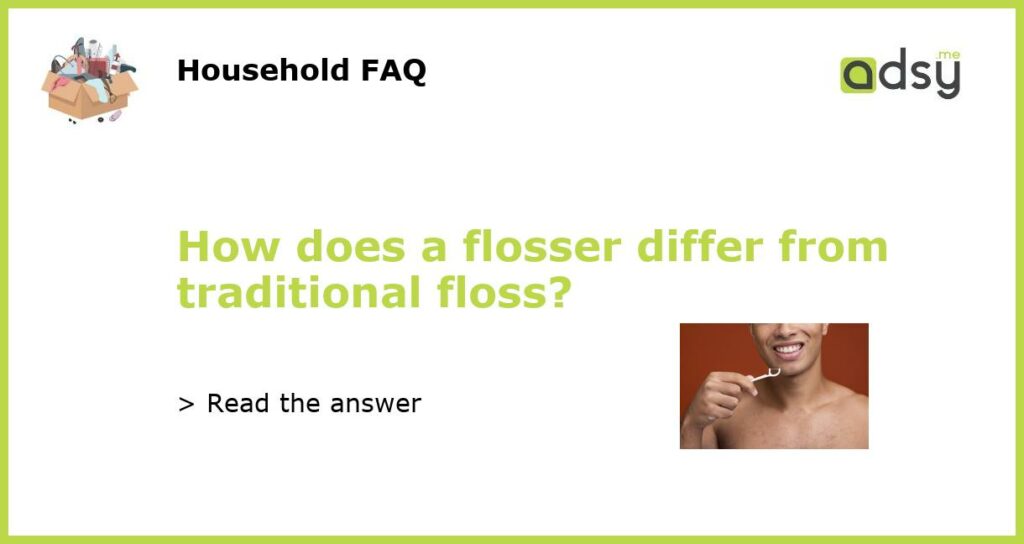What is a flosser?
A flosser is a tool used for oral hygiene that serves a similar purpose to traditional dental floss. It typically consists of a handle, a small plastic head, and a piece of floss that is attached to the head. The flosser is designed to be used to remove food debris and plaque that is caught between teeth and in areas that are difficult to reach with a toothbrush.
Waterpik, a leading brand in the oral hygiene industry, has several types of flossers on the market, including the Waterpik Cordless Advanced Water Flosser, the Waterpik Ultra Water Flosser, and the Waterpik Sidekick Water Flosser.
How is a flosser different from traditional floss?
While a flosser serves a similar purpose as traditional floss, there are a few key differences between the two. The most obvious difference is the tool that is used to apply the floss. With traditional floss, the user must manually wrap the floss around their fingers and then insert it between their teeth. This can be difficult and time-consuming, especially for individuals with limited dexterity.
Flossers, on the other hand, are designed to be easier to use. The user simply places the head of the flosser against their teeth and then presses a button or activates a trigger to release the floss. This allows the user to quickly and easily move the floss between their teeth without having to maneuver their fingers in a tight space.
What are the benefits of using a flosser?
The primary benefit of using a flosser is that it can help prevent tooth decay and gum disease. Flossing removes food debris and plaque from between teeth, which are areas that a toothbrush alone can’t reach. This helps prevent the buildup of bacteria that can lead to cavities, gum disease, and bad breath.
Another benefit of using a flosser is that it can save time. Traditional flossing can be time-consuming, especially if you have multiple teeth that need to be flossed. A flosser allows you to quickly and easily floss your teeth without having to spend a lot of time wrapping and unwrapping traditional floss.
Who should use a flosser?
Anyone who wants to improve their oral hygiene can benefit from using a flosser. Flossers are especially useful for individuals who have tight spaces between their teeth, limited dexterity, or who simply prefer a more convenient method of flossing.
People with orthodontic appliances, such as braces or permanent retainers, can also benefit from using a flosser. These appliances create tight spaces that can be difficult to clean with traditional floss. A flosser allows individuals with orthodontic appliances to more easily remove food debris and plaque from between their teeth.
Are there any drawbacks to using a flosser?
While flossers have many benefits, there are a few potential drawbacks to consider. The first is cost: flossers can be more expensive than traditional floss. Additionally, some users may find the pressure of the flosser to be uncomfortable or even painful.
Another potential drawback is that flossers require a power source. This can be inconvenient for individuals who want to use their flosser while traveling or who don’t have access to an outlet.
Despite these potential drawbacks, many people find that the benefits of using a flosser outweigh the costs.






